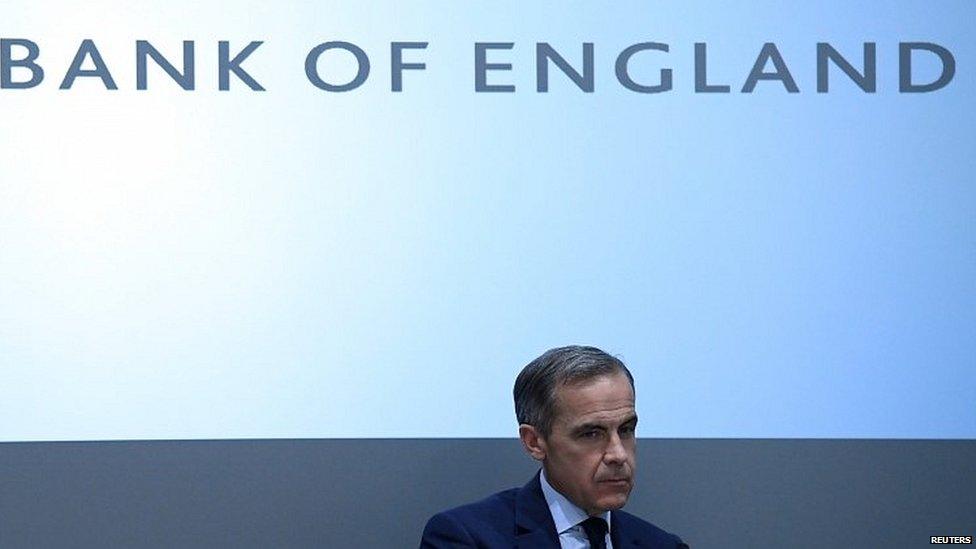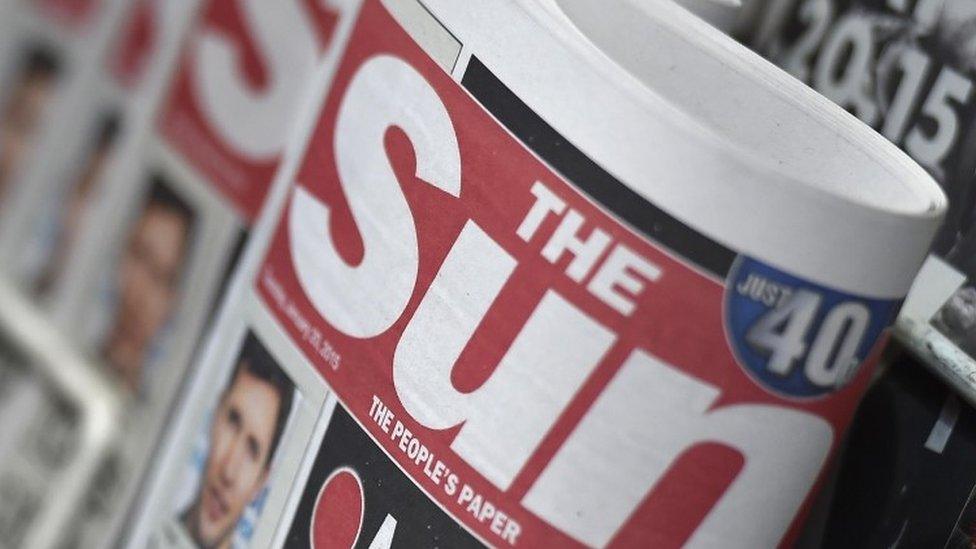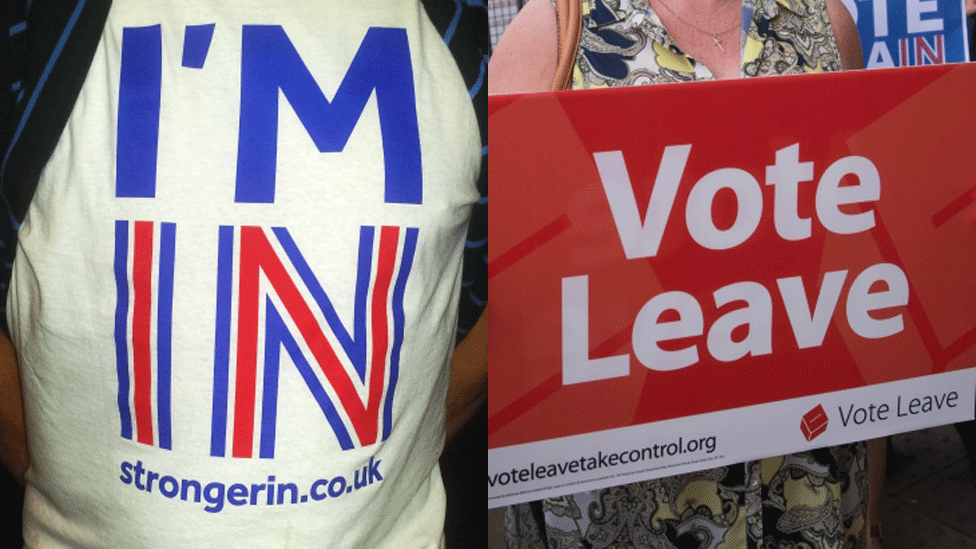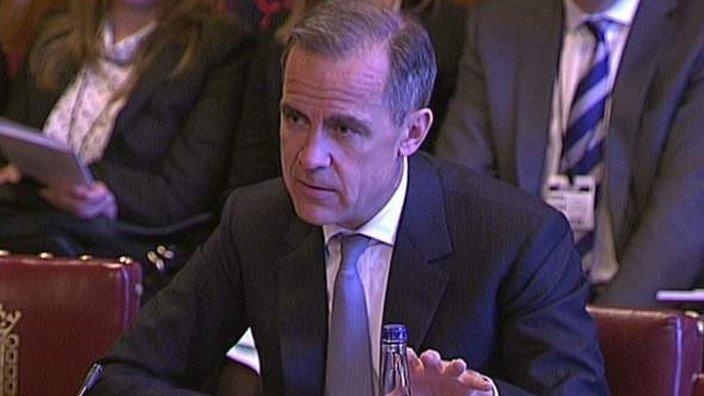Brexit: Watchdog spoke to Bank of England over EU campaign rules
- Published

Mark Carney made several interventions in the referendum debate
The Bank of England, International Monetary Fund and other economic bodies were approached during last year's EU referendum to ensure they understood the rules around political campaigning.
Governor Mark Carney came under fire from Brexit supporters for his warnings about the effects of a Leave vote.
The Electoral Commission said it made several "interventions" during the poll to ensure compliance with the rules.
One of these led to The Sun registering as an official Brexit campaigner.
In total 123 campaigners registered with the watchdog during the referendum, according to a new Electoral Commission report, external, spending a total of £32.6m.
The watchdog said it was broadly happy with the conduct of the referendum but has made a number of recommendations, such as tighter controls on loans taken out by campaigners, the inclusion of staff costs within overall spending limits and larger fines to deter transgressions.
Last month, it said it was investigating the spending returns of the rival Stronger In and Vote Leave campaigns over incomplete receipts and invoices.
The Bank of England and IMF insisted they remained neutral during the referendum but public comments by Mr Carney and the IMF's boss Christine Lagarde about the economic consequences of a Leave vote angered Brexit supporters.
Mr Carney made a number of interventions in the debate, arguing it was the Bank's duty to talk about the risks associated with different outcomes.

The Sun contacted the watchdog about its plans and subsequently registered as a campaigner
The commission has now disclosed that it contacted the Bank, IMF and OECD to "ensure that they understood the rules around campaigning", as part of its process of "comprehensive campaign monitoring".
In response, the Bank "confirmed their understanding of the rules" and said that while "purdah" rules limiting what government departments and the civil service could do in the 28 days before the poll did not apply specifically to the organisation, it would "voluntarily observe" the spirit of the guidelines.
The IMF and OECD responded that "their activity was business as usual and in pursuance of international obligations".
The Bank confirmed a conversation had taken place with the Electoral Commission. A source said it was a "fairly standard practice".
Other organisations and individuals sounded out by the watchdog over referendum-related material or events included The Hungarian Embassy, Ryanair, the World Economic Forum, the London School of Economics, JD Wetherspoon and Leave.EU founder Arron Banks.
The Sun contacted the watchdog for advice about its referendum plans after which it decided to register itself.
The watchdog received 454 complaints from the public about campaign material issued by the two lead campaigns on either side, 413 relating to Vote Leave and 41 by Britain Stronger In. It said the majority of the complaints related to the accuracy of information in campaign material.
The Commission said it did not regulate the content or design of such material and, subjects to laws on defamation and public order, it was "a matter for voters to decide what weight to give to the material presented".
- Published24 February 2017

- Published19 April 2016
